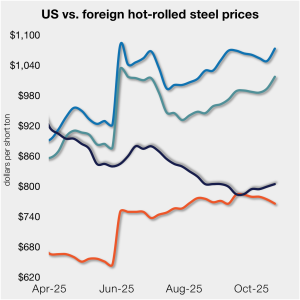
Gap between US HR prices and imports widens
SMU’s average price for domestic HR coil moved $5 higher this week, while price movements in offshore markets varied. This dynamic...

SMU’s average price for domestic HR coil moved $5 higher this week, while price movements in offshore markets varied. This dynamic...

Want to know the latest on Trump, tariffs, and trade policy - and the impact on both steel and aluminum? Then join SMU, AMU, and leading law firm Wiley for a Community Chat on Thursday, Nov. 13, at 11 am ET.

On Oct.10, President Trump announced major increases in tariffs on Chinese goods. The trigger was a new regime of export controls on rare earth metals and products using those elements, including magnets, capital equipment, and catalysts for catalytic converters in cars and trucks.
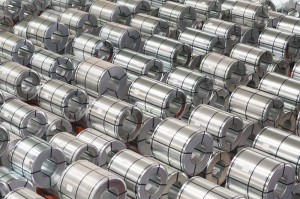
Genuine demand, they stated, will return when the market feels stable again.

Any steel imports into the EU that exceed the new, lower quota level would be subject to a 50% tariff, which represents a major increase from the EU’s current 25% out-of-quota tariff. This move would largely align the EU’s steel tariff rate with Canada and the United States.
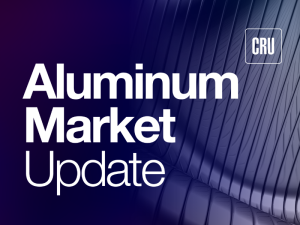
More liberal access to the Northwest Passage could play into trade negotiations between Canada and the United States.

The boom in China’s direct steel exports has not stopped this year, even with a rise in protectionist measures globally. The increase is driven by...

Iron ore shipments from US Great Lakes ports fell sharply in September, per the latest from the Lake Carriers’ Association (LCA) of Westlake, Ohio.
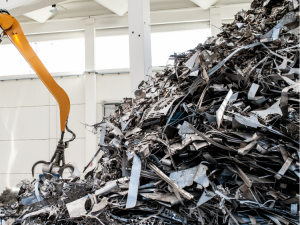
here has been considerable activity in the export scrap market in the Mediterranean Basin over the last 10 days. Prices have inched up after recovering from a brief dip in September. Prices range from...

There is no doubt that the current government shutdown reflects the vast divisions between the extremes of American politics, society, and even geography. Almost all Americans agree that government is necessary, but voters disagree...
Trade groups cautioned that a prolonged shutdown could strain US industry.

Market chatter from steel buyers this week: prices steady to slightly higher, demand weak, inventories slow, and tariffs clouding the outlook.
The US International Trade Commission (ITC) finds that corrosion resistant steel (CORE) imports from 10 countries have caused material damage to domestic product producers, according to the ITC’s statement.

Rising Midwest and European premiums are giving Canadian aluminum producers a rare boost, restoring pricing power just ahead of key 2026 negotiations.

Following a 3% decline in June, the amount of steel shipped outside of the US edged up 1% in July to 623,000 short tons. July was the sixth-lowest monthly export rate since the COVID-19 pandemic, and...
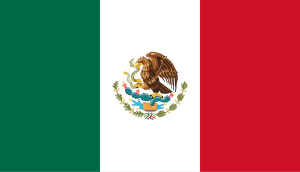
Mexico is considering imposing steep tariffs on imports of steel, automobiles, and over 1,400 other products. Its target? Countries with which it does not have free trade agreements, mainly China, India, Thailand, and other South Asian nations.
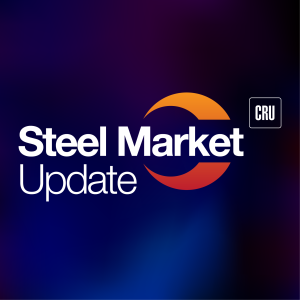
Earlier this week, SMU polled steel buyers on an array of topics, ranging from market prices, demand, and inventories to tariffs, imports, and evolving market events.

President Trump’s “reciprocal” tariffs under the International Emergency Economic Policy Act (IEEPA) were struck down again, this time on Aug. 29 by the Court of Appeals for the Federal Circuit (CAFC). The legal and policy mess continues, with the next stop being the US Supreme Court.
Tariff policy dominated the discussion of the SMU Steel Summit trade panel on Tuesday afternoon. The message was clear: uncertainty is rattling the steel supply chain.

As everyone surely knows by now, the SMU Steel Summit starts on Monday in Atlanta, Ga. So, this is a great opportunity to reflect on how much has changed since the 2024 Summit. Certainly, no one could have imagined the wholesale and transformative changes to U.S. and global trade policy.

The question of the new world order was on many minds last week when I spoke on another SMU Community Chat. The short answer is that nobody knows in detail what the effects of all the economic and geopolitical developments will be.
On Monday and Tuesday of this week, SMU polled steel buyers on an array of topics, ranging from market prices, demand, and inventories to tariffs, imports, and evolving market events.

The latest SMU Community Chat webinar reply featuring Lewis Leibowitz, trade attorney and SMU columnist, is now available on our website to all members.

The volume of steel shipped outside of the country in June fell 3% from the prior month to 618,000 short tons (st), according to recently released data from the US Department of Commerce.

The tariffs amount to a wholesale transformation of US trade policy from one promoting increasing international interaction to one of restricting trade to serve national strategic goals.
Earlier this week, SMU polled steel buyers on an array of topics, ranging from market prices, demand, and inventories to tariffs, imports, and evolving market events.

As the president’s August 1 tariff deadline approaches, the “Let’s Make a Deal” game show returns to primetime (the Monty Hall version, of course). As the administration begins rolling out trade deals, we are starting to see what’s behind door number one and who is getting a “zonk.”

Industries that use steel in manufacturing employ many more workers than steel production. Raising the cost of steel for these customers will not increase manufacturing employment. In fact, it will probably hit employment hard.

Tariff threats on Brazil aren't just hitting steel products. Aluminum is also feeling the heat.

Earlier this week, SMU polled steel buyers on an array of topics, ranging from market prices, demand, and inventories to imports and evolving market events.